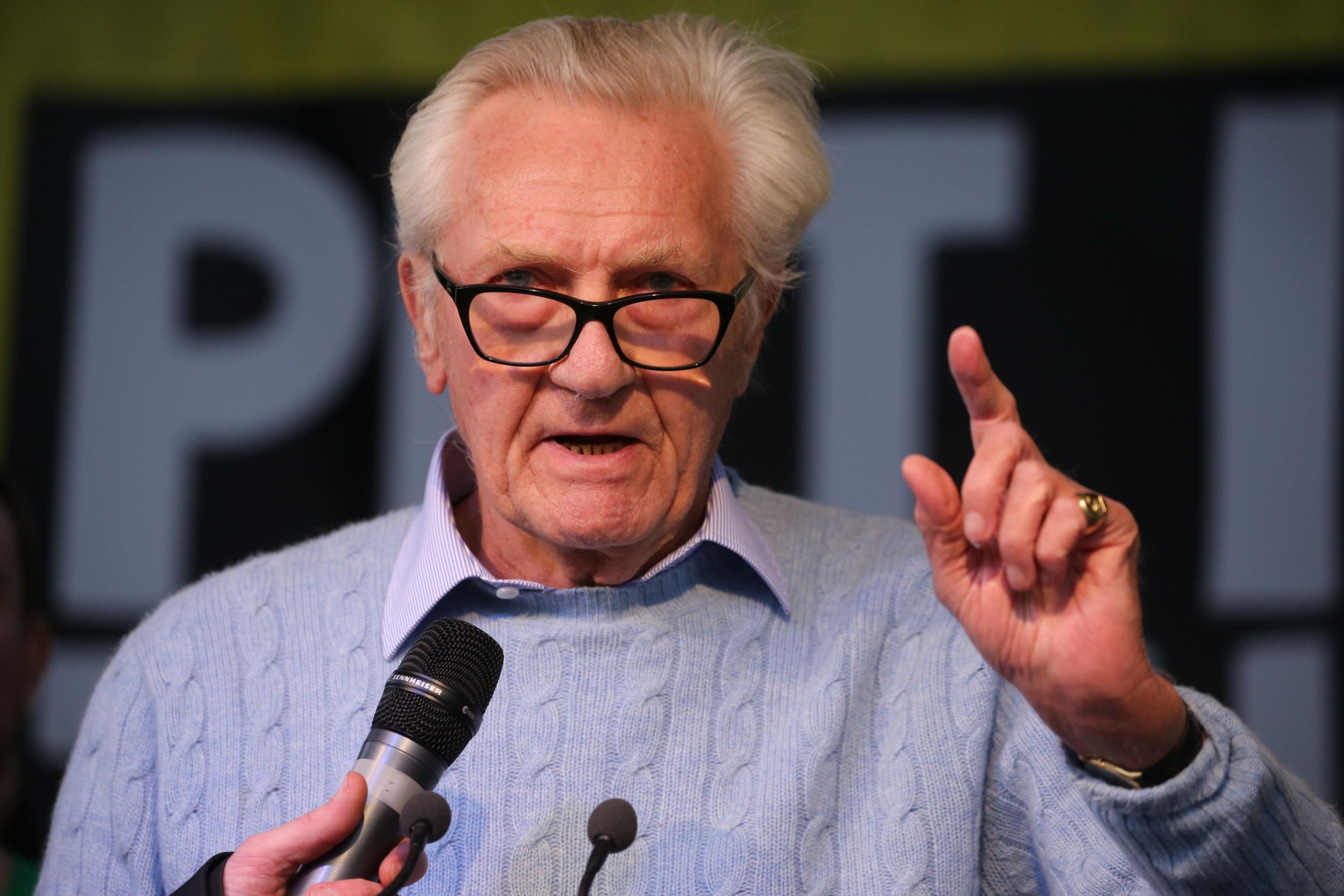Lord Heseltine remains a Conservative worth listening to
Letters to the editor: our readers share their views. Please send your letters to letters@independent.co.uk

For me, Lord Heseltine is the one and only Conservative hero (“Refusal to talk about Europe demeans us and the election”, Voices, 26 May) – and, as usual, regarding Britain’s relationship with Europe, he is spot on.
So far, during the election campaign, the topic of the UK rejoining the EU seems to be verboten – but it needs to be openly explored. Demoralised by the country’s standing in the world, and with red wall voters having been sold down the river, the public have rightly changed their minds about Brexit.
The EU has its own innate issues and problems – but Britain should be in there, with solutions and strategies, not languishing outside the tent with so very little to show for our disenfranchisement.
The Eurosceptic MPs are out of touch, out of time and hopefully soon out of office. It is now for Keir Starmer and Labour to take up the pro-European cause. He will find greater consensus than he imagines.
Judith A Daniels
Great Yarmouth
There’s Norway back for the UK
Given Michael Heseltine’s concern about the “elephant in the room” this election – the importance of our relationship with Europe (Voices, 26 May) – maybe Labour should now promise to deliver what Nigel Farage once promised the electorate, before the Brexit poll. That we should be like Norway – as a member of the EEA/EFTA, with participation in many EU programmes, albeit without voting rights?
How could the Tories or Reform object, since it is what they had promised?
Michael Imber
Ceret, France
Vote? I nearly did…
Michael Heseltine writes in The Independent that this will be “the most dishonest election of modern times” (Voices, 26 May). May I remind him that the results of first-past-the-post elections are inherently dishonest, since they do not represent what the voters voted for, as the percentage of seats gained by each party does not match that of the votes cast for each party.
Women fought long and hard to get the vote but millions of their votes today are wasted. When will our political party leaders realise we must change our voting system? In Europe, it is only the United Kingdom and Belarus that persists with FPTP voting.
Janice Davies
Bury St Edmunds
Bubbles are just asking for trouble
James Cleverly has argued that the Tories’ plan for compulsory national service is aimed at getting school leavers “out of their bubble”, which he considers necessary for people in different areas, different economic groups and different religious groups to mix together (“Defence minister ruled out national service over morale fears day after Rishi Sunak called election”, 26 May). He has a point.
Some 94 per cent of the population are educated in state schools. Yet members of recent prime ministers’ cabinets have been mostly privately educated – around two-thirds, on average. That is not a good mix and probably explains why recent Tory governments have been so out of touch with the people they govern.
Bringing people together from different backgrounds might be better achieved by abolishing independent schools and making the attendance of comprehensive schools compulsory. That’s not to say this is a sensible solution – but nor is Sunak’s for national service.
Roger Hinds
Coulsdon, London
The safety catch
It is not often that I find myself in agreement with the Conservative Party but I would agree with Rishi Sunak that the world is a dangerous place and, as a nation, we are not prepared (Editorial: “National service plan is a host of contradictions”, 26 May).
However, since the Second World War very few of us have died as a result of military conflict, compared to the hundreds of thousands killed by Covid. The government, having ignored warnings from its advisers, was totally unprepared for such an event.
The best current scientific opinion is that it is not if there will be another viral outbreak, only when. We are already seeing worrying signs concerning the H5N1 bird flu virus.
Instead of ill-thought-out attempts to win votes with mandatory national service, under the guise of protecting the population, it’s a shame more attention is not being given to actions that will really keep us safe.
G Forward
Stirling
Police resources
According to Nadine White’s article (“Daffy duck, coconuts and raccoons… when do memes, emojis and gifs become hate crimes?”, 26 May), when one member of a minority group calls another member of a minority group a “coconut”, this is perceived to be a racial slur. When this is reported to the police, they have the time, the resources and the manpower to investigate such a crime and, if deemed appropriate, bring criminal charges. Our legal system then has the time, the resources and the manpower to bring such a case to trial.
I have no time for racial discrimination and abhor such behaviour. Yet, conversely, when my motorbike was stolen, my old car was broken into and then my home burgled, the police did not have the time, the resources, nor the manpower to take any interest whatsoever in my reporting these crimes. Insufficient manpower and resources, I was told.
I guess I was lucky that at least a community police officer dropped off a leaflet, explaining what I need to do to protect myself better so police resources can be deployed more appropriately where needed, such as investigating racial slurs.
Gunter Straub
London NW3






Join our commenting forum
Join thought-provoking conversations, follow other Independent readers and see their replies
Comments